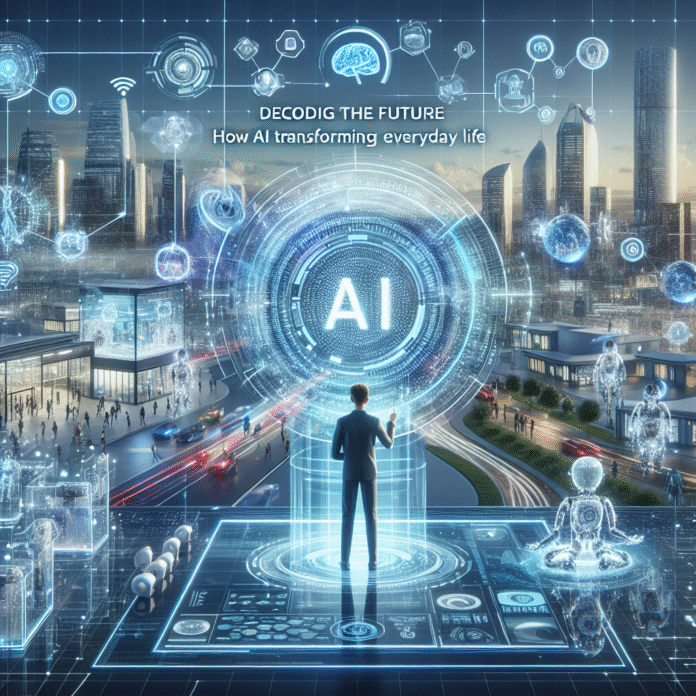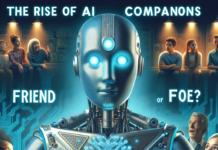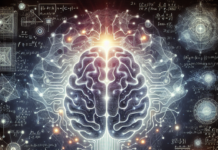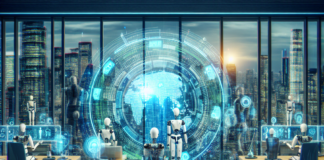Decoding the Future: How AI is Transforming Everyday Life
In the fast-paced modern world, technological advancements continue to reshape our daily routines, and none are more transformative than artificial intelligence (AI). From personal assistants to predictive analytics, AI is increasingly woven into the fabric of everyday life, revolutionizing how we work, communicate, and manage our personal lives. This article explores the various ways AI is making an indelible mark on our world.
The Rise of Personal Assistants
One of the most recognizable forms of AI in everyday life is the personal assistant. Devices such as Amazon’s Alexa, Apple’s Siri, and Google Assistant have become household staples. These AI-driven assistants streamline tasks like scheduling appointments, setting reminders, and providing updates on news or weather. As natural language processing (NLP) technology improves, these assistants are becoming more capable of understanding context and nuances in human speech, making them increasingly user-friendly and efficient.
Smart Homes and IoT Integration
The integration of AI with the Internet of Things (IoT) has led to the rise of smart homes, where devices communicate with each other to create a streamlined living environment. Smart thermostats, security systems, and appliances learn user preferences over time, optimizing energy consumption and enhancing security. For example, a smart thermostat like Nest adjusts the temperature based on the habits and routines of the occupants, providing comfort while minimizing energy expenses.
Revolutionizing Transportation
Self-driving technology represents one of the most ambitious applications of AI. Companies like Tesla, Waymo, and Uber are investing heavily in autonomous vehicles, which aim to reduce traffic accidents and improve transportation efficiency. AI systems process vast amounts of data from sensors and cameras, allowing vehicles to navigate and make real-time decisions. While fully autonomous cars are still in the pilot stages, the underlying AI technologies are already enhancing features like adaptive cruise control and lane-keeping assistance in conventional vehicles.
Enhancing Healthcare
AI is also making waves in the healthcare industry. Machine learning algorithms can analyze medical data to predict patient outcomes, assist in diagnosis, and recommend treatment plans. For instance, AI-driven tools are used for interpreting medical images, such as X-rays and MRIs, detecting abnormalities that humans might overlook. Furthermore, AI chatbots are becoming common in healthcare settings, providing patients with information on symptoms and treatments, and improving access to healthcare services.
Personalized Shopping Experiences
In retail, AI is transforming the shopping experience by offering personalized recommendations based on user behavior and preferences. E-commerce giants like Amazon leverage machine learning algorithms to analyze customers’ purchase history and browsing habits, suggesting products tailored to individual tastes. Virtual fitting rooms powered by AI can help customers visualize how clothing will fit without the need for physical trials, enhancing convenience and reducing return rates.
The Impact on Education
Education is another sector experiencing AI-driven transformation. Personalized learning platforms adapt to individual students’ learning speeds and styles, providing tailored content and resources. AI can help identify areas where students struggle, enabling educators to offer targeted support. Furthermore, AI can automate administrative tasks, allowing teachers to focus more on instruction and less on paperwork.
Challenges and Ethical Considerations
Despite its myriad benefits, the rise of AI also brings challenges and ethical considerations. Issues such as data privacy, algorithmic bias, and job displacement are hotly debated topics. As AI systems gather vast amounts of personal data to function effectively, ensuring user consent and data protection is crucial. Moreover, relying on algorithms can inadvertently propagate existing biases, necessitating ongoing scrutiny and intervention.
Conclusion
Artificial intelligence is no longer a futuristic concept but a tangible part of daily life, profoundly impacting how we operate in diverse sectors. As we move forward, the key will be finding a balance—leveraging AI’s capabilities to enhance our lives while addressing the ethical and societal challenges it presents. By embracing AI responsibly, we can decode the future and harness its potential to create a more efficient, connected, and equitable world.
Stay tuned for more updates- From smart assistants that anticipate our needs to algorithms that power medical breakthroughs, artificial intelligence is no longer a distant concept from science fiction—it’s woven into the fabric of our daily routines.







